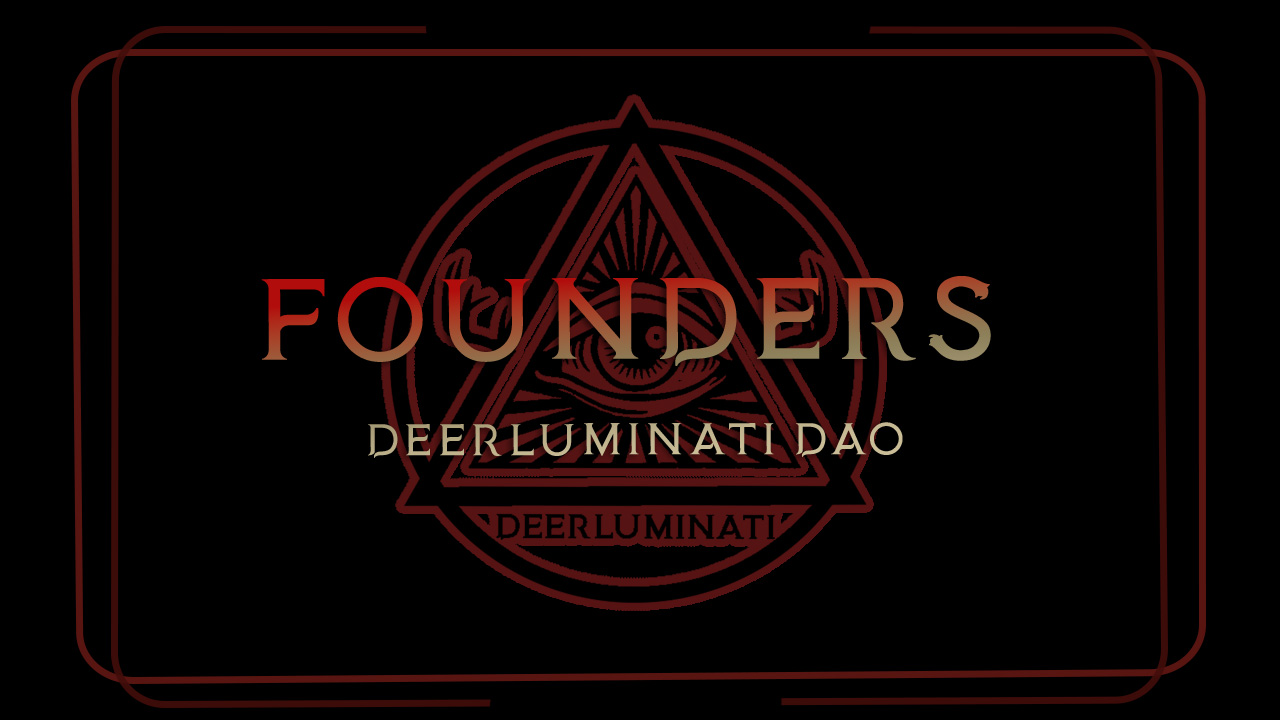👁️FOUNDERS DAO
Source: https://www.investopedia.com/tech/what-dao/
WHAT IS DAO?
A decentralized autonomous organization (DAO) is an emerging form of legal structure. With no central governing body, every member within a DAO typically shares a common goal and attempt to act in the best interest of the entity. Popularized through cryptocurrency enthusiasts and blockchain technology, DAOs are used to make decisions in a bottoms-up management approach.
KEY TAKEWAYS
A decentralized autonomous organization is an entity structure in which tokenholders participate in the management and decision-making of an entity.
There is no central authority of a DAO; instead, power is distributed across tokenholders who collectively cast votes.
All votes and activity through the DAO are posted on a blockchain, making all actions of users publicly viewable.
One of the first DAOs named The DAO was an organization created by developers to automate decisions and facilitate cryptocurrency transactions.
A DAO must ensure security is prioritized, as exploits can leave a DAO drained of millions of dollars of its treasury savings.
How DAOs Work
DAOs rely heavily on smart contracts. These logically coded agreements dictate decision-making based on underlying activity on a blockchain. For example, based on the outcome of a decision, certain code may be implemented to increase the circulating supply, burn of a select amount of reserve tokens, or issue select rewards to existing tokenholders.
The voting process for DAOs is posted on a blockchain. Users must often select between mutually-exclusive options. Voting power is often distributed across users based on the number of tokens they hold. For example, one user that owns 100 tokens of the DAO will have twice the weight of voting power over a user that owns 50 tokens.
The theory behind this practice is users who are more monetarily invested in the DAO are incentivized to act in good faith. Imagine a user who owns 25% overall voting power. This user can participate in bad acts; however, by doing so, the user will jeopardize the value of their 25% holding.
DAOs often have treasuries that house tokens that can be issued in exchange for fiat. Members of the DAO can vote on how to use those funds; for example, some DAOs with the intention of acquiring rare NFTs can vote on whether to relinquish treasury funds in exchange for assets.
Benefits of DAOs
There are several reasons why an entity or collective group of individuals may want to pursue a DAO structure. Some of the benefits of this form of management include:
Decentralization. Decisions impacting the organization are made by a collection of individuals as opposed to a central authority that is often vastly outnumbered by their peers. Instead of relying on the actions of one individual (CEO) or a small collection of individuals (Board of Directors), a DAO can decentralize authority across a vastly larger range of users.
Participation. Individuals within an entity may feel more empowered and connected to the entity when they have a direct say and voting power on all matters. These individuals may not have strong voting power, but a DAO encourages token holders to cast votes, burn tokens, or use their tokens in ways they think is best for the entity.
Publicity. Within a DAO, votes are cast via blockchain and made publicly viewable. This requires users to act in ways they feel is best, as their vote and their decisions will be made publicly viewable. This incentivizes actions that will benefit voters' reputations and discourage acts against the community.
Community. The concept of a DAO encourages people from all over the world to seamlessly come together to build a single vision. With just an internet connection, tokenholders can interact with other owners wherever they may live.
How Does a DAO Make Money?
A DAO initially raises capital by trading fiat for its native token. This native token represents voting power and ownership proportion across members. If a DAO is successful, the value of the native token will increase. The DAO can then issue future tokens at a greater value to raise more capital. A DAO can also invest in assets if the members decide to approve such measures. For an example, a DAO can acquire companies, NFTs, or other tokens. Should those assets appreciate in value, the value of the DAO increases.
Last updated
